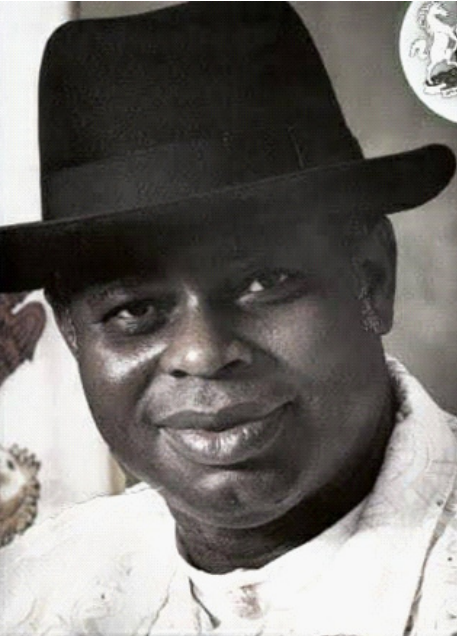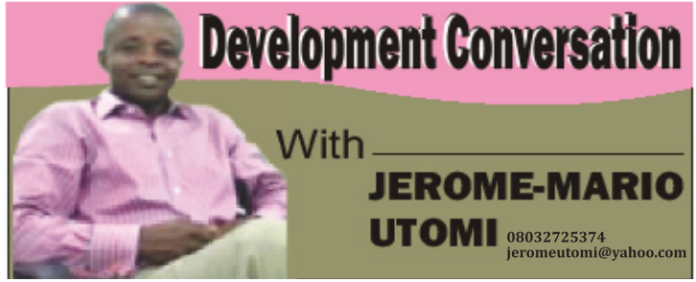
Each generation must, out of relative obscurity, discover its mission, fulfill it, or betray it”, says Frantz Omar Fanon, a French-Afro-Caribbean psychiatrist, political philosopher, and Marxist from the French colony of Martinique, whose works became influential in the fields of post-colonial studies.
On Friday October 10, 2025, Fanon’s immortal words above tugged at my heart when prominent Niger Delta leaders including Senator Douye Diri, Executive Governor of Bayelsa State, Chief James Onanefe Ibori, former Governor of Delta state, and Chiedu Ebie Esq, Chairman, Governing Board of the Niger Delta Development Commission, NDDC, among others, graced the10th memorial anniversary of the late first Executive governor of Bayelsa state, Chief Dipreye Alamieyeseigha in Yenogoa, the state capital.
After the memorial anniversary which was held at the Banquet Hall of Bayelsa state Government House with the theme, “In the Niger Delta Voice, Through Nigeria Soul; Federalism, Resource Control, And the Contemporary Nigerian State in the D.S.P. Alamieyeseigha Legacy”, the leaders retreated to the late governor’s country home where they held a brief prayer session at his graveside.
Besides Chief Ibori and Ebie, another notable Niger Delta leader that attended the event was former governor of the old Rivers state, His Royal Majesty (HRM) King Alfred Papapreye Diete-Spiff (OFR, FICMC).
Recall that as Governors, Ibori and Alamieyeseigha together with their foot soldiers including Ebie, were at the forefront of the struggle for resource control and emancipation of the Niger Delta from poverty and underdevelopment, a struggle that would birth the NDDC and recently, the South-South Development Commission, SSDC.
Fast forwarded, the noble but arduous task to breathe life to, and fastrack the development of the Niger Delta was in November 2023, entrusted to a newly appointed board and management of the NDDC, an agency set up in 2000, as a fresh beginning and a more focused effort to facilitate the rapid and sustainable development of the Niger Delta and turn it into an economic and prosperous hub; a socially stable, ecologically regenerative and politically peaceful region.
Fittingly, President Bola Tinubu had the presence of mind to fish out Ebie, a door, an achiever and technocrat with an indelible record of public service accomplishments as Chairman of the board.
A seasoned lawyer, Ebie was Delta State Commissioner for Basic Education and later Secretary to the Delta State Government. On the other hand, at the helm of the Management is Dr. Samuel Ogbuku, a technocrat with a profile spanning over 20 years of experience and expertise in crisis management and capacity building, built across diverse fields of excellent human endeavour as Managing Director. This author will from a mental note and personal diary spread out cardinal lessons Niger Deltans, developmental professionals and other critical stakeholders have, within the period under review learned from the current NDDC’s leadership.
Firstly, the NDDC team’s mastery, and unwavering commitment to balanced communication between the board and stakeholders have confirm as true the age-long axiom that says that when policies are freely discussed and publicly debated, the operations of a government becomes open to full examination by its citizens. Secondly, when decision-making processes are subjected to vigorous discussion and debate by stakeholders and impacted communities, the rule of reason becomes the standard by which every use of official power is evaluated.
Thirdly, and very fundamental, is that when ideas rise or fall according to merit, reason tends to drive all parties toward decisions that reflect the best available wisdom of the group as a whole.
The above lessons were largely derived from the recently held Niger Delta Summit, which had critical stakeholders drawn from the NDDC mandate states, and aimed at developing strategies for economic growth and development of the Niger Delta region, translating the Renewed Hope Agenda of President Bola Tinubu into an actionable plan and articulating a roadmap for the sustainable development of the Niger Delta region.
Here is what qualifies NDDC’s culture of stakeholders’ engagement as both historic and legendary: Before now, the people of the region listened with pains and confusion to slanted arguments that even in a democracy, the government is at liberty to listen, take or discard advice and public opinion. Public opinion, in the view of this group, does not always provide clear-cut policy guidance, and even when it is clearly in favour of a certain course of government action, the authorities may decide otherwise, particularly when they realize how uninformed, superficial, and changeable most opinions really are.
This author, at different times and places, had listened with consternation to public office holders brazenly contending that the government may also reject people’s opinion as a result of its own convictions, the recommendations of the public service, or the pressure of advocacy groups.
Indeed, while the above arguments peripherally appear admirable, they covertly do not hold water when faced with embarrassing facts. Directly and indirectly, such principles, commentaries and political postures adversely affect the infusion of human right principles of participation, accountability, transparency and non-discrimination towards the attainment of equity and justice in development initiatives.
As clarified by the United Nations’ Independent Expert on the Right to Development, for a programme to be tagged development, it must require a particular process that allows the realization of economic, social and cultural rights, as well as civil and political rights, and all fundamental freedoms, by expanding the capabilities and choices of the individuals.
It is factually backed that non-participatory leadership style and absence of balanced communication has in the past created terrible scenarios in the country where each time communities ask for bread, government agency makes ‘stones’ available, and in a similar manner, when the communities ask for fish, public office holders provided a ‘snake’.
Thankfully, the present happenings at the Commission are a direct opposite!
This feeling of a new order was recently succinctly highlighted by the Commission’s governing board Chairman when he explained that ”the Niger Delta stakeholders’ summit is an important part of the puzzle that we need to formulate the right strategies in dealing with the problems of the Niger Delta.
‘’So, what we’ve done is ensure that we invite critical stakeholders, drawn from the ethnic nationalities, the private sector and also, the public sector to sit down for two days and help us in fashioning out the issues and more importantly, the solutions that are needed to drive home the sustainable development for the region. In line with Mr. President’s new hope agenda. This mechanism would enable us to have a proper needs assessment of the region so that we’re not accused of doing things without hearing from the critical stakeholders and the people that matter the most’’.
The NDDC Chairman is not alone in this line of thinking as the Commission’s Managing Director early last year echoed a similar sentiment: “Our focus in 2024 will be on continuous engagement with various strata of NDDC’s stakeholders, to grasp and understand the needs of the people of the Niger Delta region.
“The Commission is set to bring relevant stakeholders in the region together to discuss ways of improving the development of the Niger Delta region. We will chart a new course for the region. The stakeholders’ summit and forum would serve as a yardstick for feedback and possibly finding ways of improvement in line with the Renewed Hope Agenda of President Bola Tinubu”, he had said.
Beyond efficacy of stakeholder’s engagement, I believe that another potent factor that conditioned the zeal daily demonstrated by governing board and management outstanding in their present ‘’rescue mission’’ of the region and its people from obscurity to opulence is largely predicated on their desire excellence and quality service delivery to the people of the region.
The truism in this, was laid bare through collective intelligence and excellent leadership and managerial acumen, well crafted thematic areas, programmes and initiatives for the sustainable development and overall benefits of Niger Deltans.
These programmes and initiatives include but are not limited to: building partnerships, project hope for renewed hope, lighting up the Niger Delta, carbon emission reduction, sustainable livelihoods, improved youth capacity and skills base, effective and professional workface, efficient and cost-effective projects, improved peace and security and stakeholder engagement.
These feats have brought to the fore positive testament and commentaries about the commission. For an instance, former President Goodluck Jonathan noted sometime ago that “with the birth of this current leadership of NDDC, people from the Niger Delta have seen some rays of light. “Therefore, I encourage the political class not to overstretch the NDDC for them to be able to perform optimally. The political class must not frustrate the NDDC so that it can optimally perform its duties”.
Viewed broadly, it is apparent that those concerns that hitherto dominated the region’s discourse have today ended in the dustbin of history with all critical stakeholders morphed from complaint to applaud for NDDC leadership and harmony among ethnic groups within the region. One useful lesson we must not allow to go with political winds is that ‘region or nation fails not necessarily because of its geographical location or lack of mineral resource but primarily because leaders in charge make decisions that engineer poverty. Most particularly as everything starts and ends with leadership’.
The changing narrative in the Niger Delta region and the tide of opinion in the region align with this assertion. This, in my view, should be another leadership lesson for all as we push for a new Nigeria of our dreams where peace, unity and enduring development shall reign supreme.


